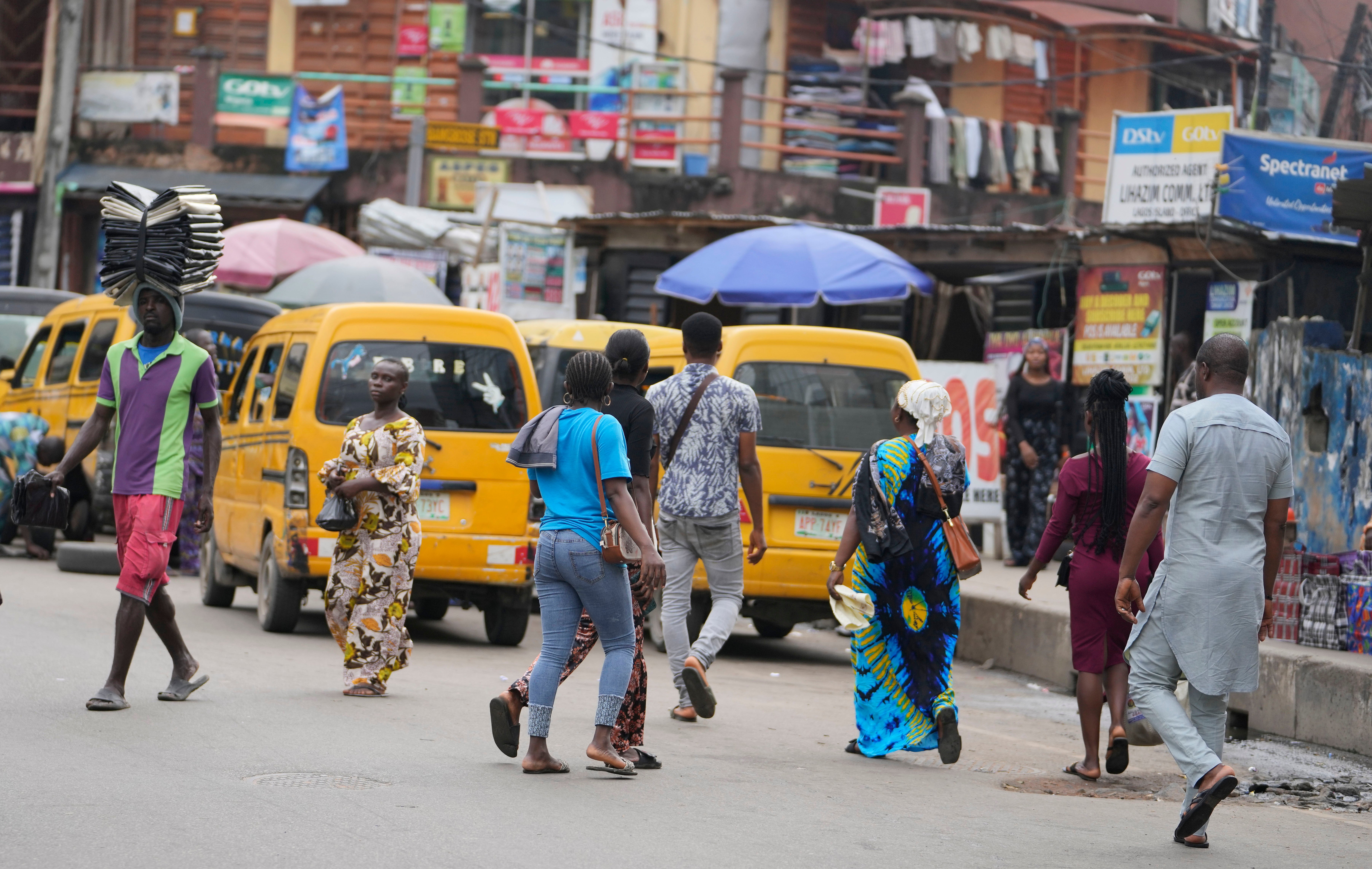A government shutdown in Nigeria has been averted after unions suspended a labor strike
Nigerian government workers are continuing their work after last-minute efforts by authorities averted a nationwide strike to protest growing hardship which could have shut down government services in Africa’s most populous country

Your support helps us to tell the story
From reproductive rights to climate change to Big Tech, The Independent is on the ground when the story is developing. Whether it's investigating the financials of Elon Musk's pro-Trump PAC or producing our latest documentary, 'The A Word', which shines a light on the American women fighting for reproductive rights, we know how important it is to parse out the facts from the messaging.
At such a critical moment in US history, we need reporters on the ground. Your donation allows us to keep sending journalists to speak to both sides of the story.
The Independent is trusted by Americans across the entire political spectrum. And unlike many other quality news outlets, we choose not to lock Americans out of our reporting and analysis with paywalls. We believe quality journalism should be available to everyone, paid for by those who can afford it.
Your support makes all the difference.Nigerian government workers on Tuesday continued working after last-minute efforts by authorities averted a nationwide strike to protest growing hardship that could have shut down government services in Africa's most populous country.
The indefinite strike by Nigerian labor unions scheduled to start Tuesday is being suspended for 30 days, while meetings and talks with the government will be held over the coming days, said Joe Ajaero, president of the Nigeria Labour Congress, or NLC, which is the umbrella body of the unions.
A joint statement issued late Monday by senior government officials and the leadership of the labor unions noted several resolutions including a monthly wage increase of 35,000 naira ($46) for all workers, payment of 25,000 naira ($33) for three months to 15 million vulnerable households as well as the provision of 100 billion naira (nearly $130 million) for gas-powered buses to be rolled out for mass transit in Nigeria starting from November.
In office since May 29, President Bola Tinubu’s policies aimed at fixing Nigeria’s ailing economy and attracting investors have more than doubled the cost of living for more than 210 million people who already were grappling with surging inflation. It hit an 18-year high of 25.8% in August.
The end to decadeslong expensive subsidies for gas and the government’s devaluation of the currency more than doubled the price of gasoline and other commodities. Talks with the labor unions have stalled and a slow start to several intervention efforts resulted in last week’s announcement of the strike.
Though lauded by some analysts, the policies of the new government have been criticized by many because of their poor implementation.
One major source of concern has been intervention efforts, which the labor unions said have been slow. Many of their workers now trek to work, because they are unable to afford high transport costs while many businesses have shut down under the weight of surging operational costs.
“The policies are meant to correct the distortions and misgovernance of the past for a nation that was already on the brink,” said Muda Yusuf, a former director-general of the Lagos Chamber of Commerce and Industry who now leads the Centre for the Promotion of Private Enterprise.
“The response has not been as fast as it should be," he said. “But the adverse outcomes of the measures, the hardship, were much higher than what many of us expected.”